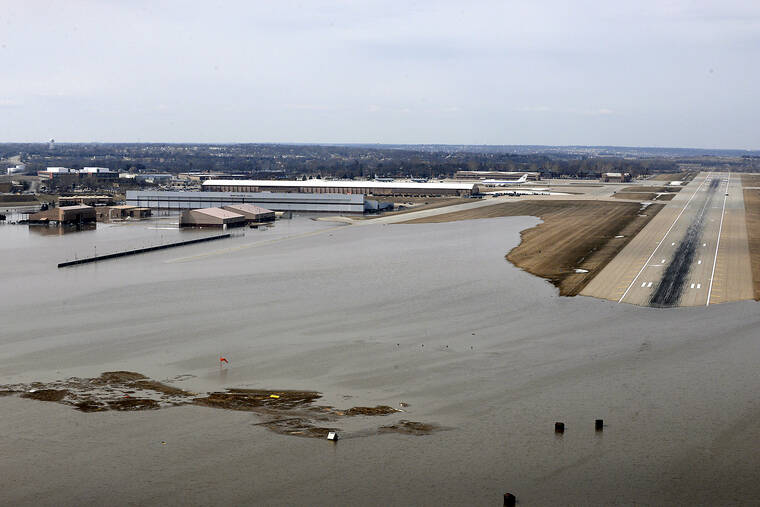Climate toll on Arctic bases: Sunken runways, damaged roads
WASHINGTON — U.S. military bases in the Arctic and sub-Arctic are failing to prepare their installations for long-term climate change as required, even though soaring temperatures and melting ice already are cracking base runways and roads and worsening flood risks up north, the Pentagon’s watchdog office said Friday.
The report from the inspector general of the Department of Defense provides a rare bit of public stock-taking of the military’s state of readiness – or lack of readiness – for the worsening weather of a warming Earth.
ADVERTISING
The U.S. military long has formally recognized climate change as a threat to national security. That’s in part because of the impact that intensifying floods, wildfires, extreme heat and other natural disasters are having and will have on U.S. installations and troops around the world.
Increasing hurricanes, flooding, storms and wildfires in recent years have caused billions of dollars in damage to Florida’s Tyndall Air Force Base, Nebraska’s Offutt Air Force Base and other U.S. military installations, and interrupted training and other operations.
For years, laws, presidential orders and Pentagon rules have mandated that the military start planning and work so that its installations, warships, warplanes and troops can carry out their missions despite increasingly challenging conditions as the use of fossil fuels heats up the Earth.
While even acknowledging climate change was a career risk for administration officials under former President Donald Trump, President Joe Biden directed faster, more sweeping action on climate change by the Department of Defense and other agencies as one of his first acts in office.
Despite Biden’s emphasis, inspectors visiting the United States’ six northernmost military bases last June and July found none were carrying out the required assessments and planning to prepare their installations and operations against long-term climate change.
Further, “most installation leaders at the six installations we visited in the Arctic and sub-Arctic region were unfamiliar with military installation resilience planning requirements, processes, and tools,” the inspector general reports said.
Senior officers told the inspector general’s inspection team that their operations lacked the training and funding to start the required work on hardening their bases. Some saw requirements for that kind of long-term planning as assembling a “wish list” that would go up against competing priorities, the officers told the inspectors.
A Pentagon spokesman did not immediately respond to a request for comment Friday.
The inspector general report cited Defense officials as saying that the Biden administration has finished or is working on many of the report’s recommendations to better incorporate climate preparations at bases and across military branches, and would increase resources to bases to make that possible.
One of the bases is in Greenland and the other five in Alaska: Thule Air Base, Joint Base Elmendorf-Richardson, Clear Space Force Station, Eielson Air Force Base, Fort Wainwright and Fort Greely.
The Arctic and sub-Arctic are important to U.S. strategic aims in part because of rising tensions and competition with Russia and China, and in part because sharply rising temperatures are melting sea ice and opening up both shipping lanes and access to the region’s oil and other resources, increasing interest and traffic in the region.
The Defense Department also sees “the Arctic is a potential vector for an attack on the U.S. homeland, a region where Russia and China are operating more freely, and a strategic corridor for DoD forces between the Indo-Pacific and Europe,” the report notes.


